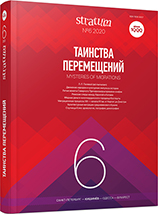
We kindly inform you that, as long as the subject affiliation of our 300.000+ articles is in progress, you might get unsufficient or no results on your third level or second level search. In this case, please broaden your search criteria.

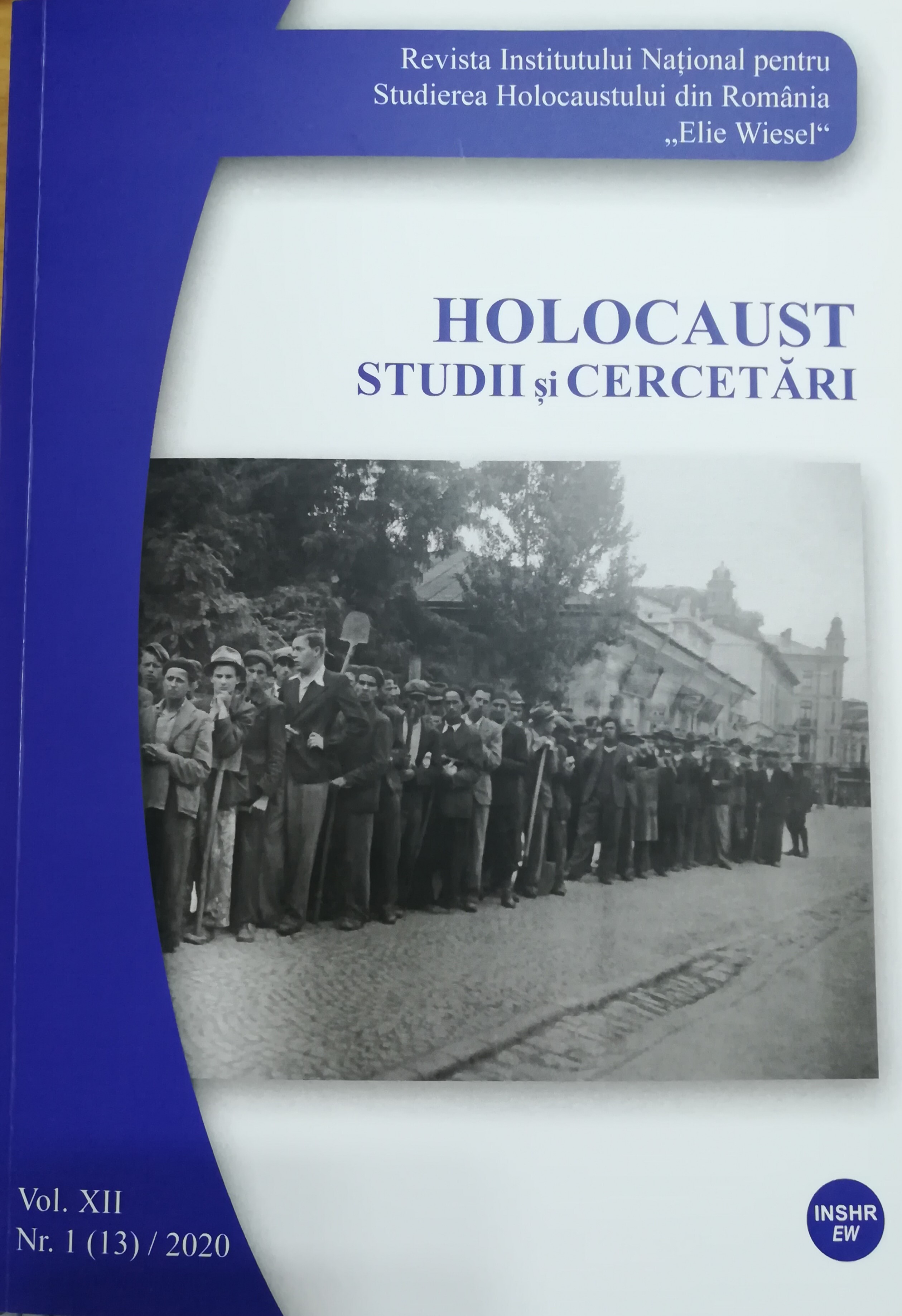
In 1940, after the withdrawal from Bessarabia, the Romanian Gendarmerie carried out investigations in order to establish how it had been achieved, whether there had been humancasualties or material losses, and what attitude the local population and the Soviet Army had displayed towards the gendarmes. The general survey brought about an image of the Jew depicted through ideological stereotypes: a communist, a traitor, a saboteur of the withdrawal efforts of the Romanian institutions’ representatives. The goal of this study is to analyze how this imaginary Jew was drawn up and whether such an image is in keeping withthat of the real Jew, resulting from text analyses and from the study of the political life of the Northern Bessarabian Jews from the interwar period.
More...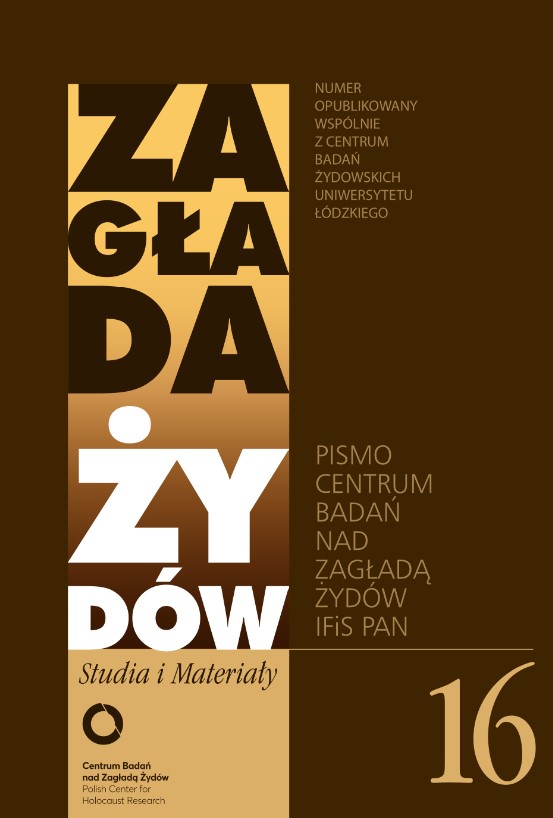
This article is devoted to the Hakhshara programs operating during the first months of the Łódź ghetto’s existence. A few dozen groups associating Jewish youth were formed on abandoned farms in Marysin in the summer of 1940. They were formally incorporated into the Agricultural Department, which operated within the framework of the Jewish administration of the ghetto. They were divided into two types. Those named with letters associated people connected with Zionist Halutz organizations, that is, those who were preparing to play the role of pioneers in Palestine. By contrast, those marked with Roman numerals associated young people from very different milieus. Referred to in documents as kibbutzim, the groups were headed by boards elected by their members. They organized work on the farms on which the buildings they occupied were situated and they conducted cultural and sports activity. The level of those group’s independence decreased in the late autumn of 1940. Aside from internal conflicts the factors which contributed to the fall of the Hakhshara movement were the worsening food supply in the ghetto (growing shortages of foodstuffs) and the necessity to organize the Departments of Labor, to which directed were the young people from Marysin.
More...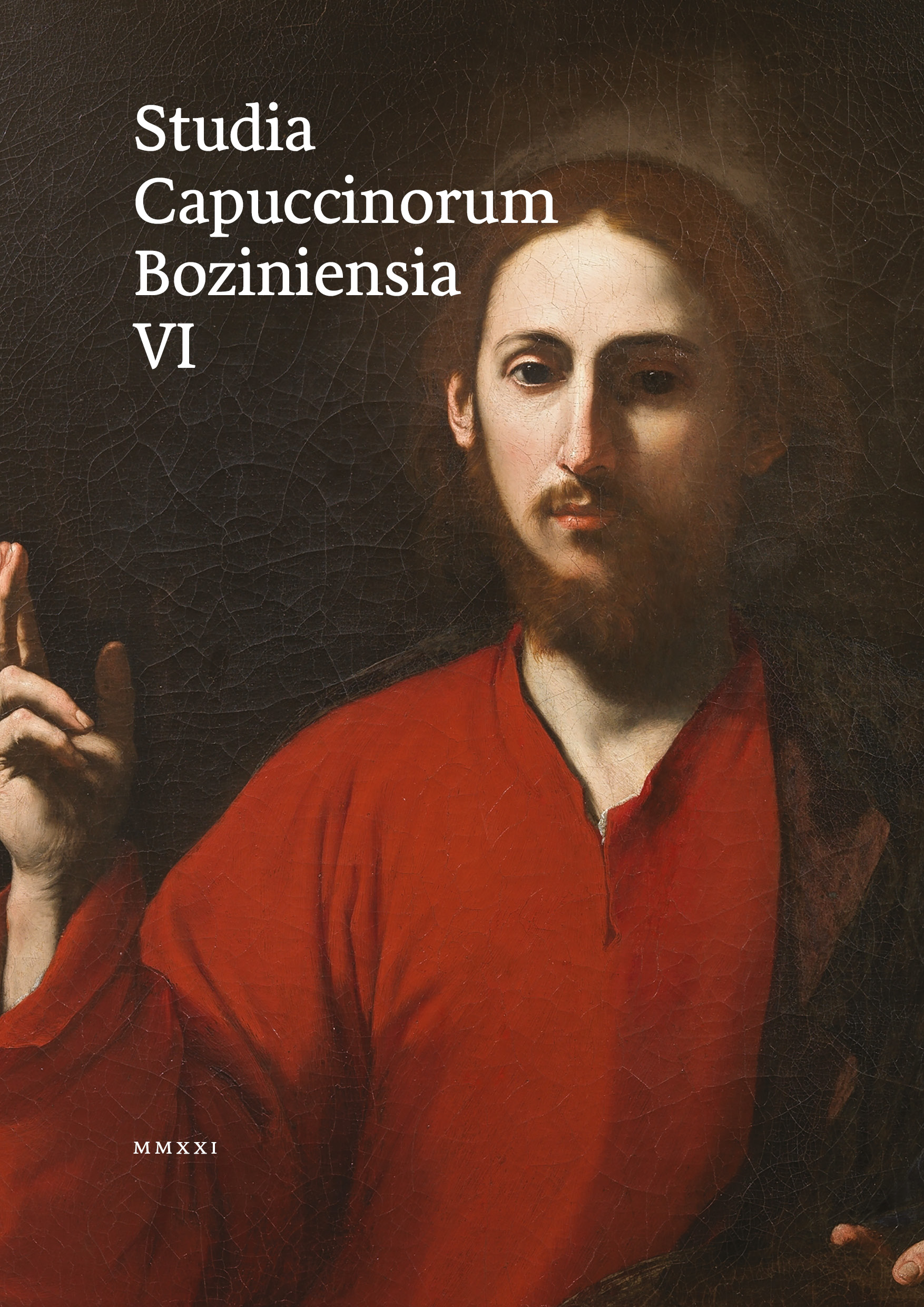
Author offers a concise synthesis of main subjects of the biblical book Wisdom of Salomon, such as justice and immortality. These themes are elaborated in strongly Hellenised context of Jewish diaspora of Alexandria by the well prepared and acculturated writer and presented in the light of traditional teaching of the Old Testament. Author also provides a good bibliographical overview.
More...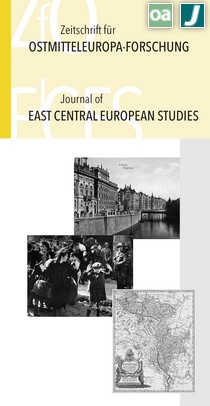
Review of: Piotr Kisiel - Hanna Kozińska-Witt: Politycy czy klakierzy? Żydzi w krakowskiej radzie miejskiej w XIX wieku [Politiker oder Claqueure? Juden im Krakauer Stadtrat im 19. Jahrhundert.] (Studia nad Cywilizacją Żydowską w Polsce, Bd. 3.) Wydawnictwo Uniwersytetu Jagiellońskiego. Kraków 2019. 248 S. ISBN 978-83-233-4626-5. (PLN 46,20.)
More...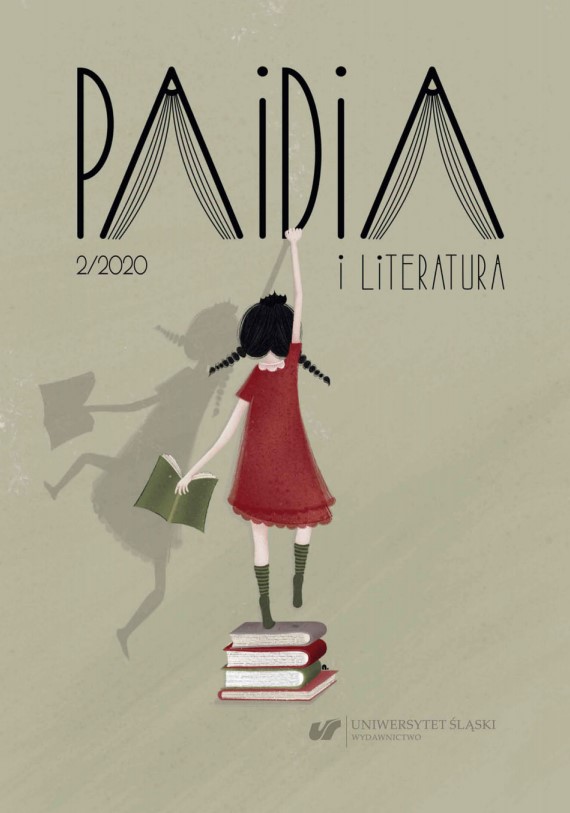
The article attempts to interpret the novel Mirabelle in the light of hauntology, taken from Jacques Derrida’s works, existing in the Polish literary studies first and foremost thanks to the works of Jakub Momro and Andrzej Marzec. Harasimowicz’s novel recounts the history of Warsaw from the 1920s until the present-day period. The mirabelle plum tree growing on one of the backyards in Warsaw tells the story of the following generations of the city dwellers who fade away and fall into oblivion. The Holocaust, depicted in the beginning of the novel, does not, however, become the past. The recollection of the genocide is inscribed in contemporary Warsaw, in the city space and the consciousness of its inhabitants. The phantoms of the former dwellers of Nalewki, the Jewish district in Warsaw, visit their homes, little stores, and workshops, trying to end unfinished businesses and engaging with the representatives of the present-day citizens. The gesture of remembrance, which is the replanting and redeveloping a new mirabelle tree in the place of the damaged one, gives people hope for the restoration of balance and strengthens the bonds between the living and the dead.
More...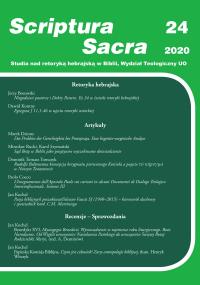
Der vorliegende Artikel passt sich in den kognitiv-exegetischen Kontext der Forschung zur Heiligen Schrift ein. Einerseits berührt er das Gebiet der Sprachwissenschaft, mach aber einen Schritt weiter in Richtung der Exegese der Propheten-Schrift, hier des Buches Protojesaja. Das Ziel solch einer Herangehensweise ist die Probe einer Beurteilung der Brauchbarkeit einer Methode der kognitiven Sprachwissenschaft zur Analyse eines biblischen Textes und die Einschätzung der Neuartigkeit der Ergebnisse derartiger Analyse bzw. der Bestätigung der bisherigen Ergebnisse. In der Untersuchung fand Anwendung die Methode der konzeptuellen Metapher in der Definition von George Lakoff und Mark Johnson. Als eine kognitive Methode bietet sie die Möglichkeit einer synchronen Untersuchung des Textes, sie gibt Einsicht in das Denken der Menschen der Entstehungszeit des Textes. Infolge der Analyse wurde es möglich, das ganzheitliche Bild des Gerechtigkeits-Problems im Buch Protojesaja zu erfassen. Aufgrund der Untersuchung kam man zum Schluss, dass sich die Methode zur Exegese des heiligen Textes eignet, indem sie das holistische Bild des untersuchten Problems und dessen Entwicklung zeigt. Gleichzeitig muss man bemerken, dass man mit dieser Methode nur einen ausgewählten Aspekt untersuchen darf, die gleichzeitige Untersuchung mehrerer Motive kann zur gewissen Unübersichtlichkeit und dem Mangel an Ergebnisse führen.Obwohl die Methode eher die bisherigen Analysen bestätigt, liegt ihre Innovation darin, dass sie das ganzheitliche Bild des untersuchten Problems erfasst.
More...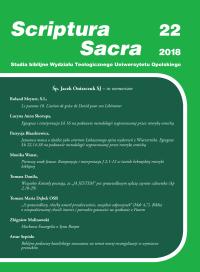
Przedmiotem artykułu jest egzegeza i interpretacja Łk 16 na podstawie metodologii wypracowanej przez retorykę semicką. Założony cel został osiągnięty. Przeprowadzone badania oraz ich wyniki opisano w 3 powiązanych ze sobą punktach. Pierwszy z nich został poświęcony kompozycji tekstu. Na ten etap pracy składała się: delimitacja, która pozwoliła wydzielić 16. rozdział Ewangelii wg św. Łukasza jako jedną jednostkę oraz nakreślić jej kontekst; możliwe stało się ukazanie, że w skład Łk 16 wchodzą 3 powiązane ze sobą fragmenty oraz ich szczegółowa segmentacja (ujęta w 2. podpunkcie). Ostatnim etapem było spojrzenie całościowe na badaną sekwencję, uzasadniające jej symetryczno-koncentryczną budowę. W drugim punkcie przeprowadzono analizę intertekstualną poszczególnych wyrażeń, istotnych dla interpretacji perykop wchodzących w skład sekwencji. Na tym etapie badań możliwe stało się dostrzeżenie powiązań pomiędzy jednostkami. To z kolei pozwoliło w trzecim punkcie opisać zależności i uzasadnić proponowaną wcześniej figurę kompozycyjną AXA’. Wypracowana interpretacja poszczególnych fragmentów stała się punktem wyjścia dla głębszej analizy, w której interpretacji poddano jednostki paralelne, co z kolei pozwoliło na wyciągnięcie wniosków teologicznych. Wykazano, że poznanie, w rozumieniu biblijnym, jest pierwszym etapem na drodze do pełnego zaangażowania. Tylko ten, kto prawdziwie doświadczył bliskości Jezusa, jest zdolny podjąć ryzyko, wykorzystując wszystkie możliwe środki, by pozyskać Królestwo Niebieskie. Może to uczynić jedynie, okazując miłosierdzie i czyniąc użytek z dóbr doczesnych. Niepodzielne serce oddane na służbę Bogu domaga się kreatywnej miłości bliźniego.
More...
The unexpected death of a young man is not meaningless to a Christian. Although in the Old Testament, longevity was regarded as a consequence of a good life, God’s reward for executing justice (see e.g. Ex 20:12; Dt 5:16.33; 11:8.21; Si 1:12.20), the Bible teaches about the relative value of life on the earth and blessing of the deceased young servants of God (see e.g. Si 18:8-10; Ws 1:6.8; 2.1.6.21-23; 3:1-3.9-11). Sudden death was considered as a God’s punishment (see e.g. Num 11:1; 14:37; 16:21.31-35; Dt 28:20; Ps 78:33; Jr 28:17; Ezk 11:13). The temporal prosperity of sinners is an expression of God’s patience, who calls for conversion and will judge everyone (Ml 2:17–3.2.14-20). Christ calls us to be ready to meet him (Matthew 24:42-44; Luke 12:39; Mt 25:13; 24:45-51; Luke 12:41-48). Just as nobody except the Father in heaven knows the moment of the second coming of Christ (Mark 13:28-37), so no one knows the moment of his death. The apostles encourage perseverance, vigilance, and trustful expectation of the end of earthly life, which is only a stage on the way to God (see Acts 20:28-31; Ephesians 6:18-20; Colossians 4:2; 1 Th 5:5-8; 2Tm 4:5; Heb 13:17; 1 P 5:8; Rv 3:3; 16:15; Ph 3:12-14; 2 Tm 4:6-8; Rm 14:8). We trust that many of our young deceased can already enjoy the reward for their good lives and works.
More...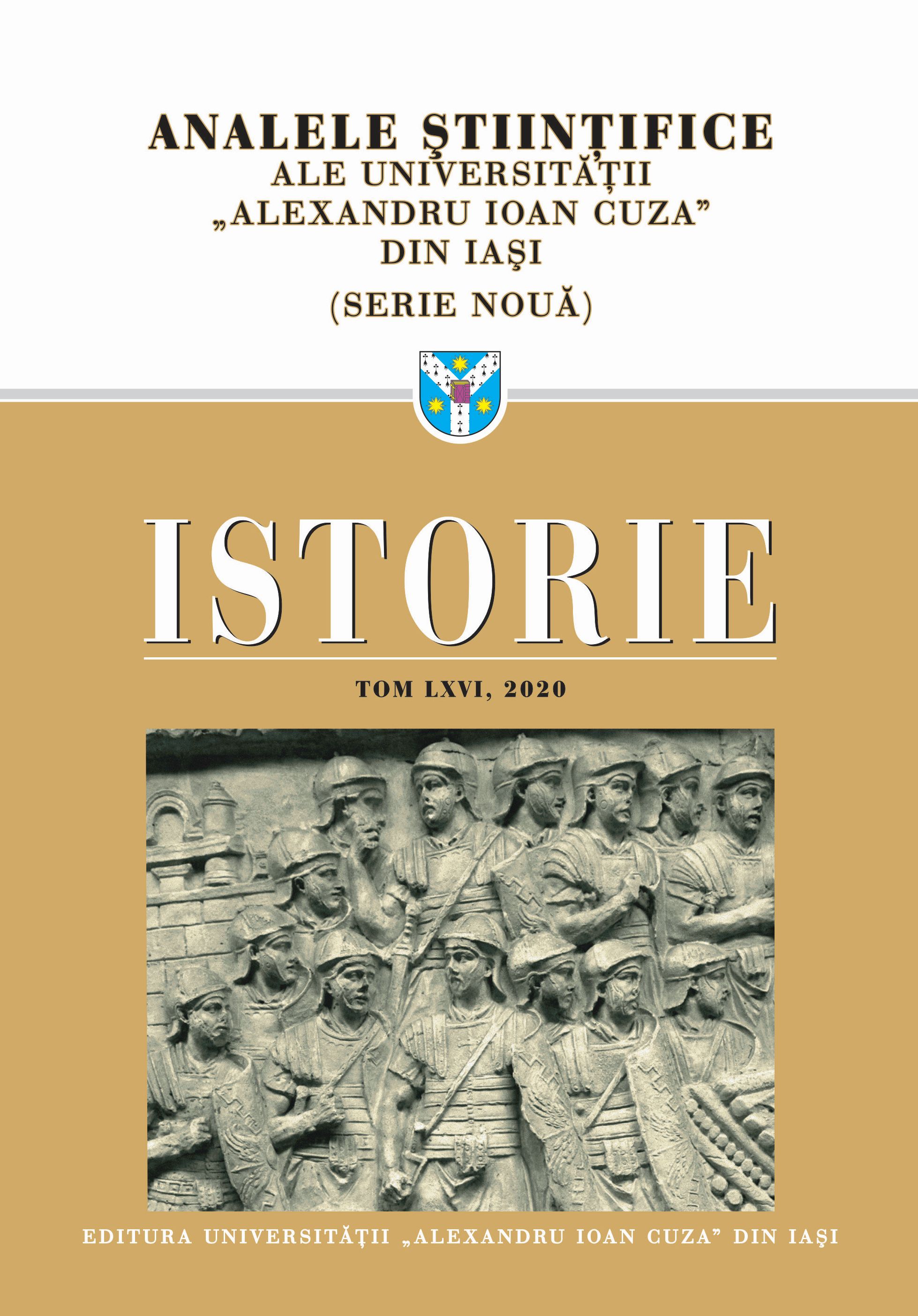
Publishing nominal population censuses is, in our opinion, the most accurate manner to highlight important documents for researchers dealing with areas such as the social structure and the origin of the population, demography, onomastic, genealogy etc. The Jewish community from Huşi in 1845, a small one compared to those in the cities located in the northern part of Moldova, represented a dynamic element in the life of the town. The diversity of the crafts and of the branches of trade practiced by Jews shows us that most of their work was complementary to that of the natives.
More...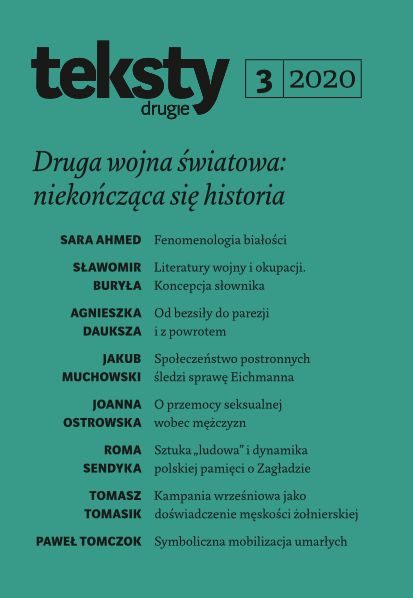
Molisak describes surviving passages from the play Madagaskar [Madagascar] written by Bogdan Wojdowski in the sixties. The playwright intended to create a work on the existential situation in the Warsaw Ghetto after most Jews had been deported to the Treblinka camp.
More...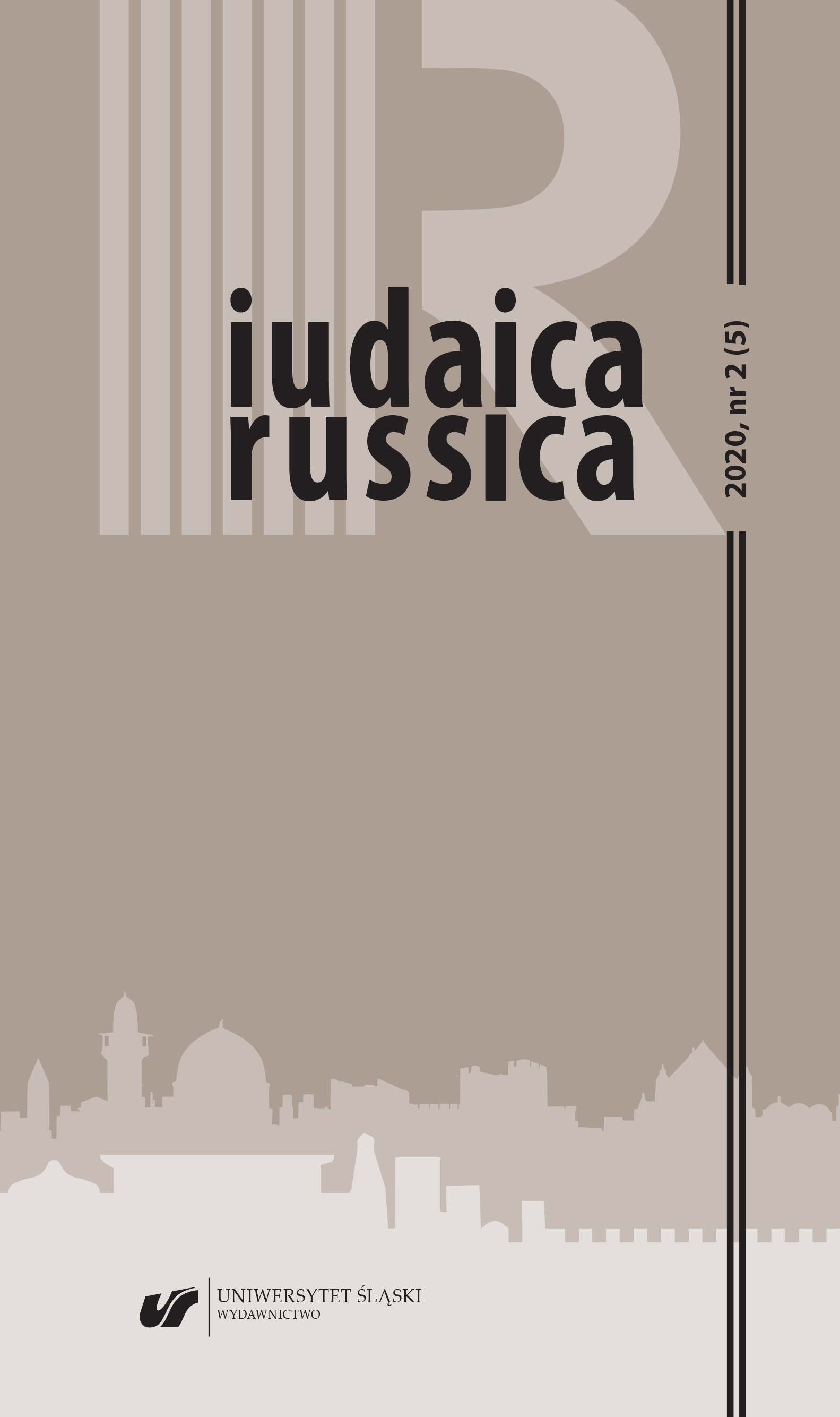
W kolejnych dwóch częściach artykułu na przykładzie twórczości czterech izraelskich poetek (Alex Rif, Nadi-Adiny Rose, Yael Tomashov i Rity Kogan) zaprezentowane zostały kulturowo-estetyczne właściwości poezji hebrajskiej przedstawicieli młodego pokolenia — tzw. generation one and a half — dzieci wychodźców z byłego ZSRR. Obszernie omówiono kwestię dziedzictwa oraz transformacji kulturowej i psychologicznej, a także praktyk poetyckich odróżniających poszczególnych autorów, w twórczości których wspomniane dziedzictwo i transformacja są obecne. Niniejszy artykuł poświęcony jest utworom Yael Tomashov i Rity Kogan (część pierwsza traktująca o twórczości Alex Rif, Nadi-Adiny Rose ukazała się w poprzednim numerze).
More...
The author tries to explain the riddle presented in the novel by the modern writer David Markish, The White Circle, about the ethnic identity of the character Matvey Katz, whose prototype is the avantgarde artist Sergey Kalmykov (1891–1967). The name and lifestyle of this artist became the reason for the birth of a personal myth, which formed the basis of the novel semi-detective plot. If in the discourse of the second half of the XX century and in the XXI century (mythology, cinema, a number of literary texts), Sergey Kalmykov, a Russian by origin, appears as a half-mysterious, half-mad person, an Alma-Ata freak, but under his real name, then, in Markish’s novel, he is a Russian artist of “Jewish origin”, living in the fictitious Central Asian topos named Kzylgrad. To explain the ethnic travesty that runs counter to historical reality, to “decipher” the location of the novel associated with the last years of the artist’s life are the tasks solved by the author of the article.
More...
Artykuł wprowadza kategorię metageograficznego stylu do analizy wybranych powieści poradzieckich żydowskich pisarzy północnoamerykańskich, którzy budują nowe konfiguracje przestrzenne w odniesieniu do byłego „Drugiego Świata”. Owe rekonfiguracje są dobrze widoczne w porównaniu ze współczesną nieemigrancką żydowską literaturą amerykańską, a szczególnie w porównaniu z powieściami post-holokaustowymi. Teksty literackie, które zachęcają nas do przemyślenia na nowo zakorzenionych przestrzennych i regionalnych podziałów geopolitycznych osadzone są jednocześnie w przestrzeni USA, jak i byłego Związku Sowieckiego. W ten sposób tworzą osie podobieństw oraz ich braku, które nie pokrywają się z hegemonicznym podziałem przestrzeni na „Pierwszy” i (były) „Drugi Świat”. Jako przykład, artykuł ten omawia Petropolis Anji Ulinich, ukazując transregionalne powiązania między miastem na Syberii, z którego pochodzi bohaterka książki, Żydówka afro-Rosjanka, a jej pierwotnym celem imigracji w USA — Phoenix w Arizonie.
More...
Artykuł poświęcony jest życiu i twórczości mało znanego sowiecko-żydowskiego poety Iosifa Utkina (1903–1944), który zginął podczas II wojny światowej. Ten wybitny twórca ciągle pozostaje nieznany na Zachodzie, a jego poezją rzadko zajmowali się nawet badacze rosyjskojęzyczni. Autorkę artykułu interesują trzy aspekty poezji Utkina: aspekt muzyczny, poezja wojskowa i wątki żydowskie. Aspekty te poddano analizie, gdyż stanowią centralne, najbardziej podstawowe elementy twórczości poety. Jednakże poezja Utkina nie ogranicza się do tych aspektów, dlatego też celowe wydaje się zbadanie występujących w niej motywów folklorystycznych, specyfiki gatunkowej, symboliki oraz opisów różnych rzemiosł i zawodów. W swojej poezji Utkin stworzył zaczarowany świat, świadczący o niezwykłym i błyskotliwym talencie artystycznym. Jego twórczość wyraża ducha dawnych czasów, romantyczną wiarę w sprawiedliwy komunizm, nadzieje, które rozwiały się wraz z końcem II wojny światowej i początkiem antysemickiej polityki Stalina, zwanej „mrocznymi latami sowieckiego żydostwa”.
More...
The article describes previously unknown intertextual relationships and kinships between Marina Tsvetaeva and Rafał Wojaczek. The author reveals analogies in both the biographical and the textual spheres. The first one contains the existential and ideological problems as well as myth-forming aspects focusing on the fact of suicidal death (of both authors), the second one the thematization, organizing poetic statements and identical formal resolutions. The figures of “the Negro” and “the Jew” come to the fore as well as the issues centered around the anti-aesthetic categories: guilt and punishment, life and death, sacrum and profanum.
More...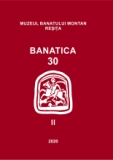
The formation of the nation-states in the Central and South-East of the old continent following the dissolution of the Central Powers at the end of the First World War gave the opportunity to assert the collective identity expressed by a number of linguistic, cultural and ethnic groups. The Great Powers, true heterogeneous structures in linguistic and confessional terms, had tried unsuccessfully to create a supranational identity by eliminating or at best leveling the distinct elements of Germans, Czechs, Slovaks, Croats, Slovenes, Poles, Romanians, Finns, without of course forget about the Baltic peoples. Usually people react strongly, positively or negatively to what they perceive to be right differently. Too few times do they remain indifferent. One of the negative reactions is anxiety. The fear of otherness, of the different cultural, linguistic and religious fellow citizens of the majority group can be compensated by exploration and experimentation, by accepting and embracing the differences. The power of words and the power of thoughts are probably the greatest forces for people through the long-term impact they can have on individuals but also on communities. The purpose of Nazism was to exterminate all Jews in Europe. Gypsies and neo-Protestant sects were on the list. Under these conditions, the mere survival of the Jews was a form of resistance. In Romania, the resistance was relatively successful. A relatively large percentage of the Jewish and Gypsy community in Romania survived the Holocaust.
More...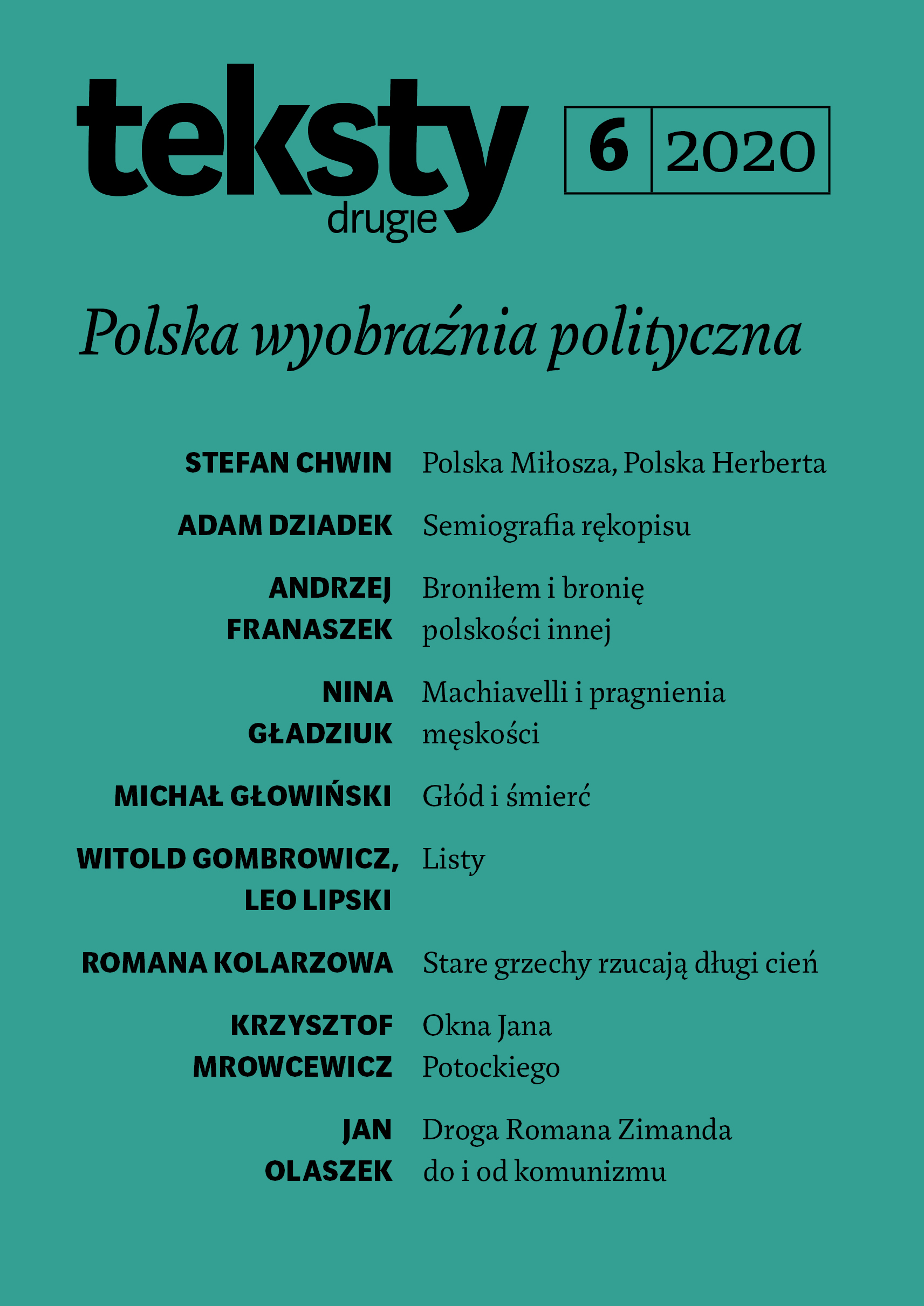
Review: Archiwum Ringelbluma: Antologia, ed. by M. Janczewska, J. Leociak, BN I, 334,Ossolineum 2019.
More...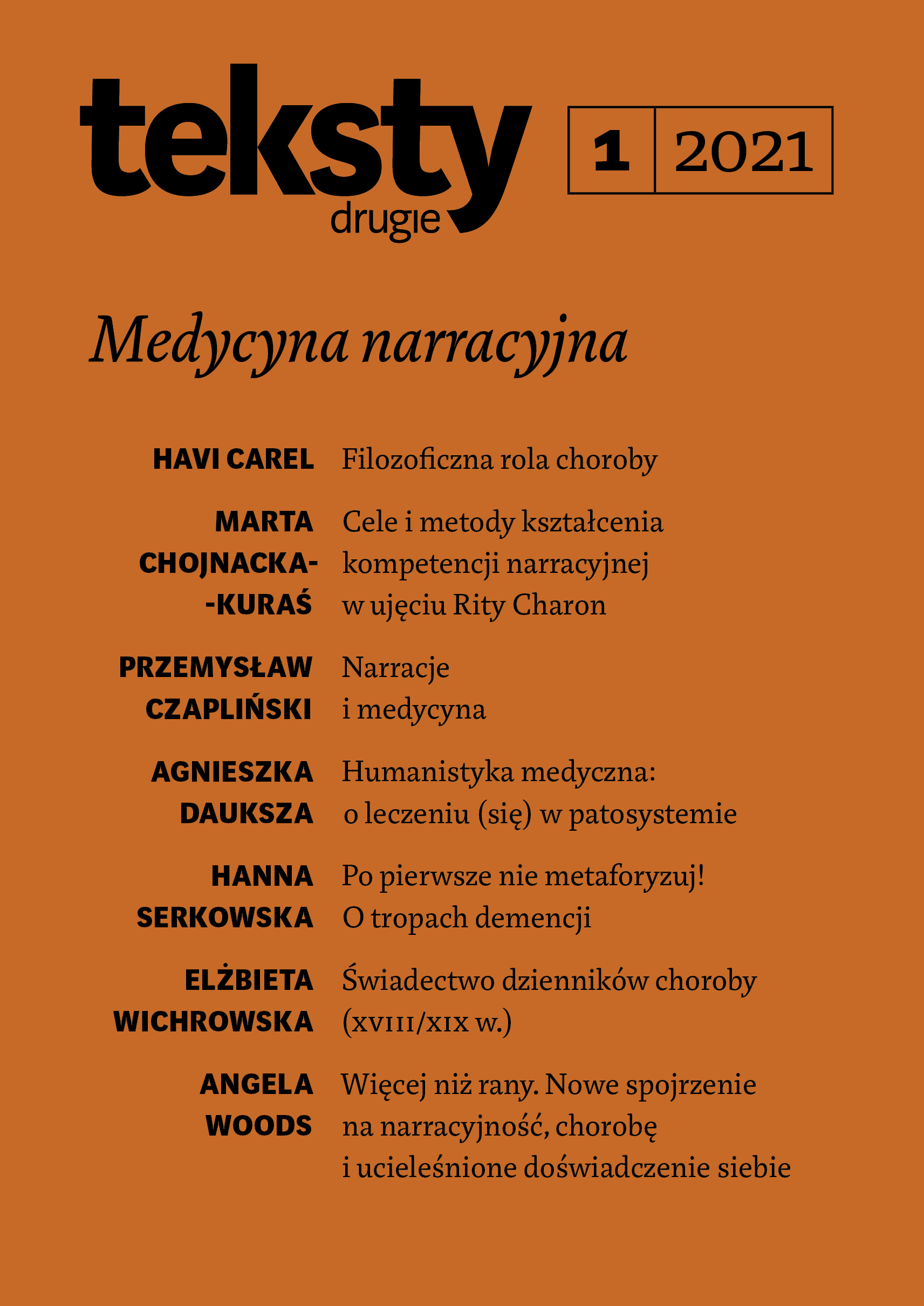
Ładoń portrays the blind journalist, poet and prose writer Jadwiga Stańczakowa (1919--1996), outlining the state of research on her work and presenting possible readings of her output – with a focus on the role of her mentor Miron Białoszewski, or in terms of literature with disabilities (also from a typhlological perspective). Ładoń explores Stańczakowa’s memoirs Ślepak (Blind, 1982) as the story of a blind witness of the Holocaust.
More...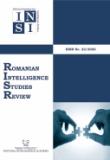
From 1798 until now, the society has passed from the term of "stereotype", which at that time called the typographic moulds of lead, to that of "stereotype" in the sense given by Walter Lipmann, that is of the images in our mind, which helps us build an interpretation of the world, necessary to understand it, to adapt and find a place and a role within it. Although stereotypes seem to play a positive role, helping us to think and react more quickly to a new situation, they are a kind of false friends, leading us to a subjective form of normality, and what lies outside this normality it becomes the fuel for stigmatizing those who are not "common". Stereotypes contribute to increasing social distance and push people to act to the detriment of other people, such as ethnic stereotypes, those antipathy based on inflexible generalizations, resulting in the emergence of vulnerable communities in the face of aggressive discourses. The importance of stereotypes as precursors of prejudices and foundations of discrimination is equally great, regardless of whether we talk about the abundance of negative references to Jews in Romanian proverbs and sayings, the negative attributes related to the Roma ethnicity in various Romanian dictionaries, the journalistic discourse related to the "exoticism" of the LGBT community or the unfavourable views of the Hungarian minority by the Romanian majority. Therefore, conceptions such as "eating at the Jew but not sleeping at night alone in his house" or "they will call the gypsies to take you if you are not behaving yourself" are equivalent to ideas about genetic determination or mental disorder that induce homosexuality, as well as eating meat kept under the saddle by the predecessors of the present times Hungarians and all these ideas are efficient fertilizers for conflicts, waiting only for a trigger.
More...